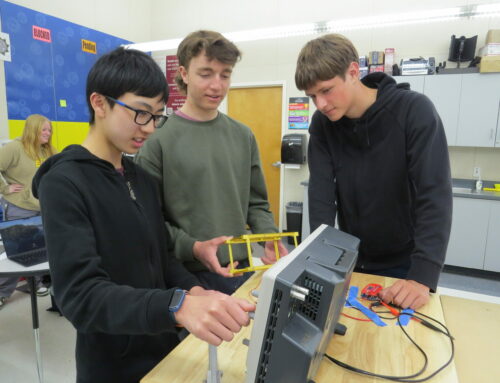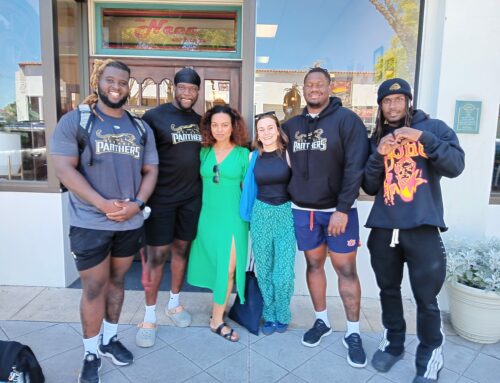Published in the March 18-31, 2015 issue of Morgan Hill Life
By Marty Cheek
In their American journey, every immigrant brings with them a complicated and human story. “The Book of Unknown Americans” is a novel that tells of the complex emotions created by leaving behind the family, friends and familiarity of a homeland to come to the United States. All immigrants face the uncertainties of starting a new life in America.
Written by Chicago-based author Christa Henríquez , the novel is one of three books that were picked for this year’s Silicon Valley Reads program, which chose the theme of “Homeland & Home: The Immigrant Experience.” The other books are “We Need New Names” by NoViolet Bulawayo and “Stealing Buddha’s Dinner: A Memoir” by Bich Minh Nguyen.
Henríquez will be at the Morgan Hill Library speaking about her novel at a reception starting 7 p.m. Tuesday March 24. Read the Q&A story we did with her on page 22.
I’ve been listening to an audio version of “The Book of Unknown Americans.” The fictional story humanizes people whom too many of us native Americans often psychologically shield from our minds in our daily lives. Here in the South Valley, we encounter the immigrants working in our farm fields, cleaning our homes and business buildings, and waiting at the day worker sites for an odd job. We tend to forget that they are people whose lives are often a financial and social struggle.
In Henríquez’s novel, the Rivera family travels from Mexico to Newark, Del., after the teenage daughter suffers a brain injury from a fall and they believe they can get help for her in the United States. The father, Arturo, owned a construction company in Mexico, but he gave that business up to come to America where he finds a job working in the dark all day in the dirt picking mushrooms in a building most likely similar to the mushroom farms here in Morgan Hill. They live not in a house with a white picket fence and a spacious front lawn but in a tiny, dingy apartment with dark mustard-yellow walls and air that reeks of mildew. The American dream turns into a nightmare for the Riveras as bad luck and the distrust of other people disrupt their lives. The family feels homesickness, missing the beat and light and rhythms of the town in Mexico they left.
I saw this heart-tearing homesickness first hand with my own mom, an immigrant who came to California from Berlin to marry my dad in 1964. She made many friends and was active in her life in Hollister. But she’d often travel back to Germany to spend time with her family base there, spending months there sometimes. My mom had it lucky compared with many of the immigrants who come to the United States. She had the security of being married to an American and did not have to struggle with the fear of possible deportation.
America’s immigration system is broken. Eleven million people now live in the shadows of the law, fearing what might happen to them if their secret is discovered. And too many employers game the system by illegally hiring undocumented workers and placing them in situations where their human rights are violated. This broken system hurts the American economy, and that’s one reason why we need our political leaders to work together on real immigration reform.
According to the nonpartisan Congressional Budget Office, Senate Bill 744, the Border Security, Economic Opportunity and Immigration Modernization Act, would reduce the budget deficit by $135 billion in the first decade after the bill’s passage and, in the second decade when most undocumented immigrants would become eligible for citizenship, by an additional $685 billion. As Baby Boomers retire in the next decades and put a strain on our Social Security system, citizenship for undocumented workers would provide a net $606.4 billion to Social Security during the next 36 years, according to the CBO.
Immigration reform providing undocumented immigrants with legal status today and citizenship in five years would generate 159,000 new jobs every year, adding $144 billion in federal, state and local taxes during a 10-year period from these workers. The 10-year cumulative increase in America’s gross domestic product would be $1.1 trillion.
In the biblical book of Leviticus, a verse deals with the issue of how to welcome immigrants in a nation by commanding: “The alien who resides with you shall be to you as the citizen among you; you shall love the alien as yourself, for you were aliens in the land of Egypt.”
Too often, too many of us native-born Americans forget that the people from our past whom we descended from ventured from their home forever and faced the dangers of starting a new life in a new land. It takes courage to give up what is familiar for the opportunities America gives. We should honor that courage.
As one of the characters in Henríquez’s novel tells the reader: “We’re the unknown Americans, the ones no one even wants to know, because they’ve been told they’re supposed to be scared of us and because maybe if they did take the time to get to know us, they might realize that we’re not that bad, maybe even that we’re a lot like them.”








